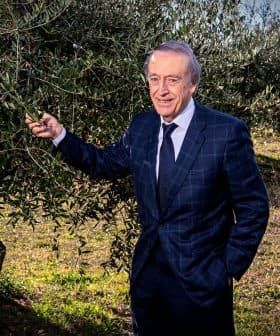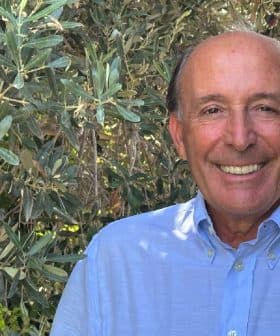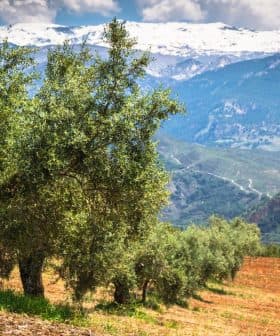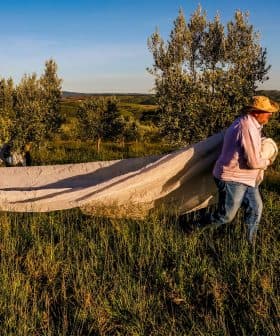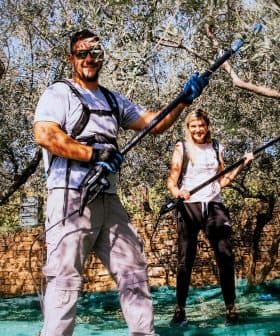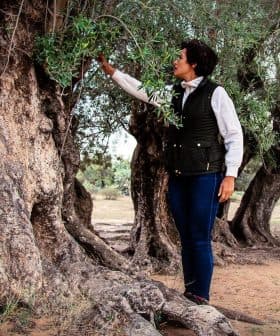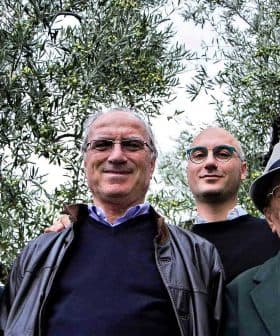Montsagre: Picual Perfection Among the Empeltre
This is Empeltre territory, an area which comprises the Bajo Aragón region, the Ebro valley and the Terra Alta in Tarragona. It is also home to Albert Barrobés and his family's award-winning Picual.
 Albert Barrobés (photo by Pablo Esparza for Olive Oil Times)
Albert Barrobés (photo by Pablo Esparza for Olive Oil Times) Pablo Picasso spent two important periods of his life in Horta de Sant Joan, a village in Spain, where the landscapes are said to have influenced his art during a creative turning point leading to Cubism. Albert Barrobés, an olive oil producer in Horta, emphasizes the importance of organic farming and sustainability in the region, where his estate produces high-quality olive oil that has won awards.
“I learned everything I know in Horta,” Pablo Picasso once said.
The Spanish painter spent two short but key periods of his life in the little village of Horta de Sant Joan, in the Catalan province of Tarragona, northeast of Spain.
Many landscapes captivate you, but this one, on top of being a captivating landscape, is the landscape of my roots and of my grandparents.
In the summer of 1898, he was just a sixteen-year-old boy recovering from a lung disease. In 1909, he came back with his partner Fernande Olivier.
The landscapes of Horta are said to have had an impact on the artist when he was at a creative turning point leading to Cubism.
Large sways of pine forests, vineyards, olive groves and almond trees dotted with medieval villages and surrounded by the imposing presence of the Montsagre (literally, “sacred mountain”), and the verticality of the Benet Rocks.
The Catalan Terra Alta comarca and the adjacent Aragonese Matarranya share an essential and unspoiled Mediterranean landscape.
Here is where Albert Barrobés and his family produce their Montsagre olive oil where, on assignment for Olive Oil Times, I met him at his estate between Horta de Sant Joan and Caseres, a neighboring village.
“Many landscapes captivate you, but this one, on top of being a captivating landscape, is the landscape of my roots and of my grandparents,” Barrobés explained.

Views from the estate (Pable Esparza for Olive Oil Times))
Barrobés, an architect by profession, speaks with passion about his land and his oil. Son of Catalan emigrants, he lived a good share of his life in Venezuela. This explains why, when he speaks, he combines the local dialect of Catalan and a Spanish with a Caribbean accent.
“My grandparents worked here until they had to move to Barcelona at the beginning of the 20th century. My parents also migrated to Venezuela. But later on, they came back to meet their roots again,” he said as we walk across his 100-hectare estate where pine forests pleasantly alternate with terraces of olive groves.
Terres de l’Ebre — the lands of the river Ebro in Catalan — where Horta de Sant Joan is placed, has been a Unesco Reserve of the Biosphere since 2013 due to its complex mix of plains, marshes, deltas, mountains and valleys.
In this place, organic farming, said Barrobés, was a logical and a vocational step. “We have been producing organic for years. And we are very much interested in the sustainability both of this activity and this environment. Because we are surrounded by forests that need to be managed with common sense.”
The techniques they use for their organic production are diverse.
Next to the barn where Barrobés keeps his machinery, in a field where wheat has already been harvested, Pyrenean horses graze. “They usually go down the olive groves. They don’t like olive trees sprouts, so they help us controlling the weeds,” he pointed out.

Horses at the Montsagre estate (Pablo Esparza for Olive Oil Times)
“We also use kaolin, which is a white mineral, to ‘paint’ the trees so they are less attractive for the flies without using pesticides.”
Montsagre’s estate lies in an area at 530 meters above sea level. Long sunshine hours and little precipitation lead to a lower production here compared with other Spanish regions.
“This is an alkaline land and there are a lot of rocks underground. This, together with the climate we have here, gives us a number of climate and geological traits that make olives produced here of a very good quality,” Barrobés explained. His organic delicate Picual won a Best in Class Award at the 2018 NYIOOC World Olive Oil Competition — one of only 16 oils to achieve the distinction among 1,000 contenders.
When Albert Barrobés’ father replanted these fields some 30 years ago, he made an unusual decision in this county by planting Picual, a variety typical from Jaén, which is the most common in Spain.
In spite of being out of its “natural” region, the cultivar gives good results in Horta de Sant Joan. However, this is Empeltre territory, an area which comprises the Bajo Aragón region, the Ebro valley and the Terra Alta in Tarragona.
“These olives have always been much appreciated as black table olives, but if pressed when olives are still green, we can get an extraordinary fruity oil,” he told OOT. “For us, Empeltre is an added value because it is basically known just here.”
Not far from Montsagre’s estate, Barrobés takes a detour from the main road to show what he calls one of Horta’s main monuments: A monumental olive tree called Lo Parot, or “the big father” in Catalan.
More than 8 meters high and a 15-meters perimeter, this giant has been part of this landscape for over 2,000 years.
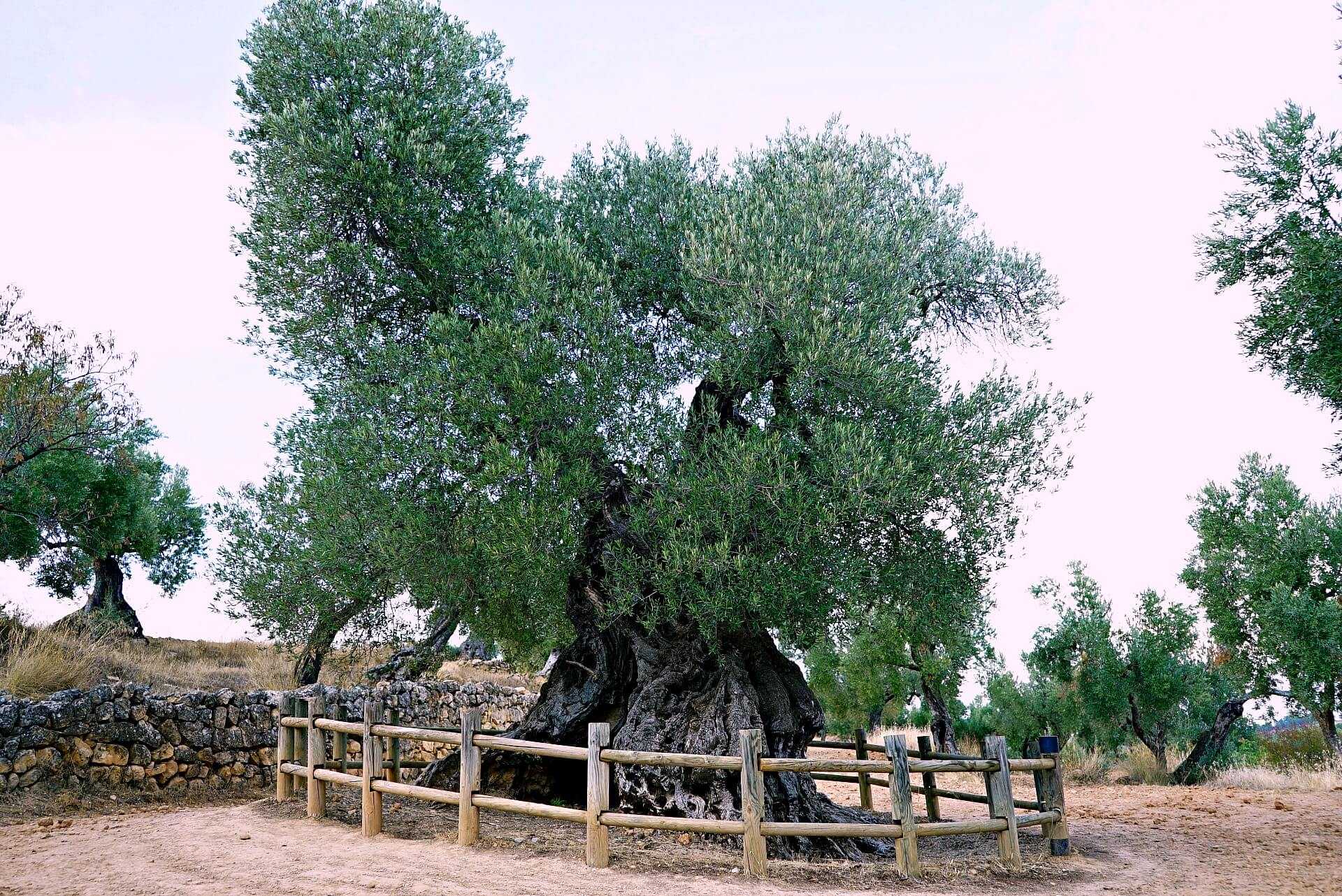
Lo Parot (Pablo Esparza for Olive Oil Times)
Share this article


